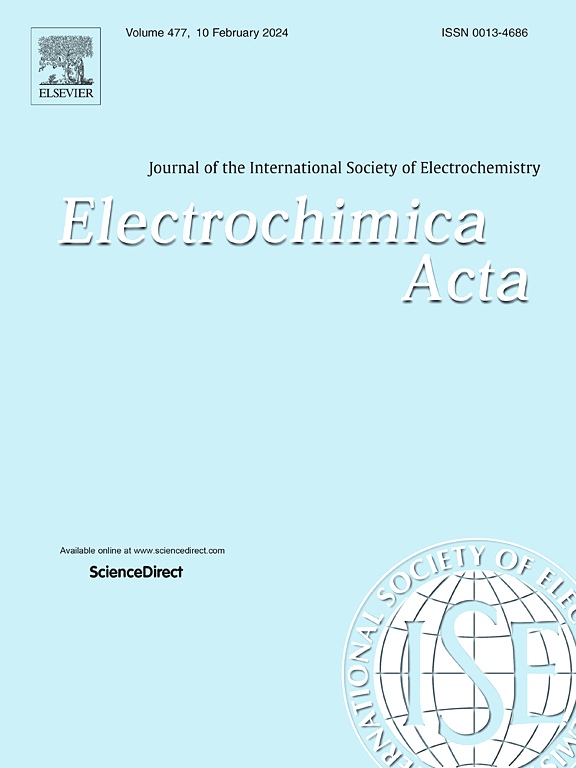Lithium-induced defect centers in nanorod-shaped zinc oxide for supercapacitor applications
IF 5.5
3区 材料科学
Q1 ELECTROCHEMISTRY
引用次数: 0
Abstract
Lithium (Li) doped ZnO nanorods were synthesized in this work using the hydrothermal method by varying the Li ions concentration. The synthesized material was used as an electrode material for supercapacitor application, and the effect of the Li ions on the electrochemical properties was reported. The Li-doped ZnO nanorods were characterized using X-ray diffraction, electron microscopy, and Raman spectroscopy to obtain information on the structural and morphological environment. Electron paramagnetic resonance, Raman, and photoluminescence spectroscopy gave information on the defect environment of the materials, which plays a vital role in this work as a change in the defect structure directly influences the electrochemical properties. Finally, the electrochemical performance of the electrode materials was tested by assembling all-in-one supercapacitor devices using cyclic voltammetry, electrochemical impedance spectroscopy, and galvanostatic cycling with potential limitations as testing techniques. The result obtained showed extremely positive trends for this type of electrode material. The maximum specific capacitance was achieved for the 0.5% Li-doped ZnO, which showed a value of 700 F/g at 1 mV/s with an impressive energy density of 56 Wh/kg and excellent cyclic stability.
求助全文
约1分钟内获得全文
求助全文
来源期刊

Electrochimica Acta
工程技术-电化学
CiteScore
11.30
自引率
6.10%
发文量
1634
审稿时长
41 days
期刊介绍:
Electrochimica Acta is an international journal. It is intended for the publication of both original work and reviews in the field of electrochemistry. Electrochemistry should be interpreted to mean any of the research fields covered by the Divisions of the International Society of Electrochemistry listed below, as well as emerging scientific domains covered by ISE New Topics Committee.
 求助内容:
求助内容: 应助结果提醒方式:
应助结果提醒方式:


